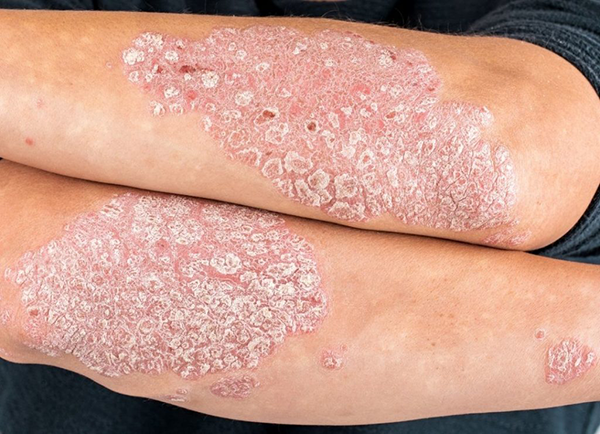Psoriasis Allergy
The chronic (long-lasting) condition psoriasis is caused by an overactive immune system that multiplies skin cells too quickly. Skin becomes scaly and irritated in patches, usually on the knees, elbows, or scalp, but it can also affect other parts of the body. Although the exact etiology of psoriasis is unknown, scientists do know that a combination of environmental and genetic factors have a role.
The symptoms of psoriasis can sometimes go through cycles, flaring for a few weeks or months followed by periods when they subside or go into remission. There are many ways to treat psoriasis, and your treatment plan will depend on the type and severity of disease. Mild psoriasis can often be successfully treated with creams or ointments, while moderate and severe psoriasis may require pills, injections, or light treatments. Managing common triggers, such as stress and skin injuries, can also help keep the symptoms under control.

